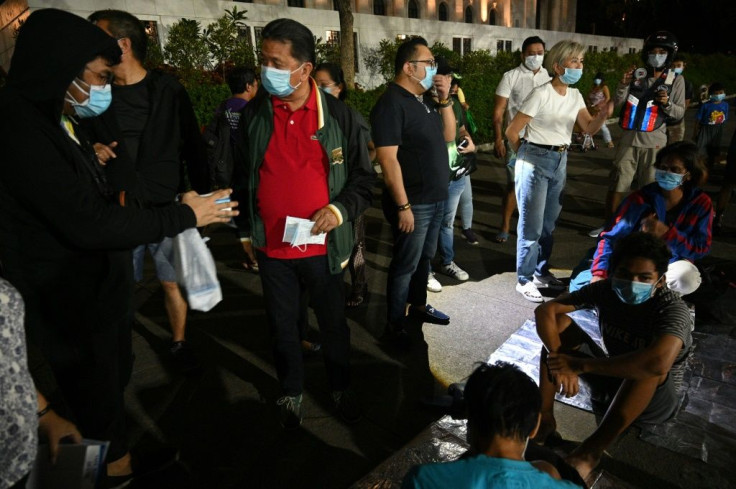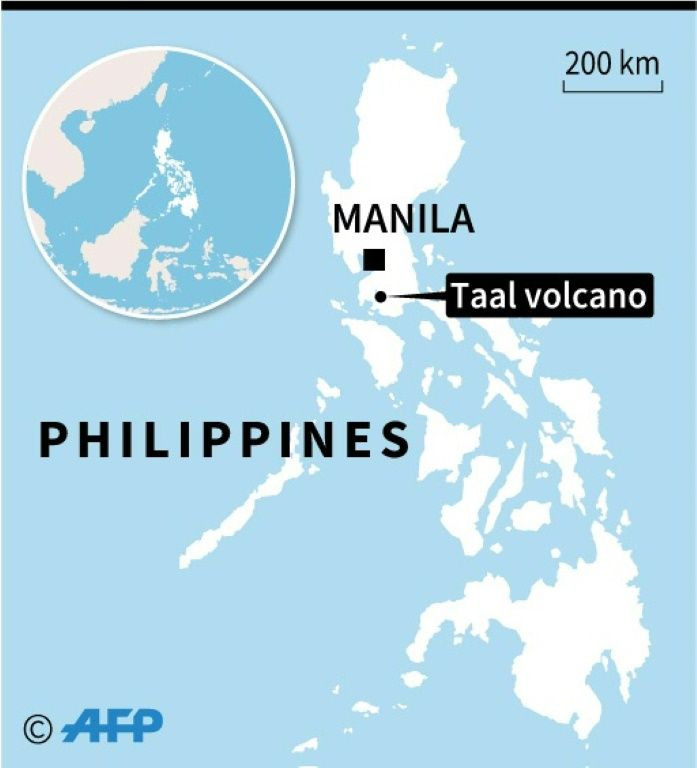Ash Pours From Philippine Volcano, Halting Flights

The Philippines was on alert Monday for the "explosive eruption" of a volcano south of Manila, which officials said could be imminent after a massive column of ash forced a halt to flights at the capital's main airport.
Taal volcano, a popular tourist attraction set in the centre of a picturesque lake, spewed ash, rumbled with earthquakes and exploded with lightning above its crest.
Thousands of people living nearby were evacuated from their homes, but other locals weighed whether or not to flee the area.
A "hazardous explosive eruption is possible within hours to days", the nation's seismological agency warned.
"I'm afraid that it might erupt... but I'll leave it to fate. I just have to pray," Eduardo Carino, who works in a hotel near the volcano, told AFP.
After the ash cloud reached 50,000 feet (15,000 metres) into the atmosphere, aviation officials ordered a suspension of flights to and from the capital's Ninoy Aquino International Airport (NAIA).
Authorities initially halted operations at NAIA for a few hours, but later on Sunday announced that flights would be suspended "until further notice".
The Philippine Institute of Volcanology and Seismology (Phivolcs) cited a threat to aircraft from "ballistic fragments."

Transport secretary Arthur Tugade had instructed aviation officials to "do whatever is necessary in the interest of public safety", said a joint statement from air and transport authorities.
Government seismologists recorded magma moving towards the crater of Taal, one of the country's most active volcanoes located 65 kilometres (40 miles) south of Manila.

Taal's last eruption was in 1977, Phivolcs chief Renato Solidum told AFP.
Several tremors were felt within the vicinity of the volcano, seismologists said.
The local disaster office said it had evacuated more than 2,000 residents living on the volcanic island, which lies inside a bigger lake formed by previous volcanic activity.
Solidum said officials will also order the evacuation of people living on another island nearby if the situation worsens.
"Ash has already reached Manila... it is dangerous to people if they inhale it," he told AFP.
Apart from the ash, some particles up to 6.4 centimetres (2.5 inches) in diameter, larger than a golf ball, had reportedly fallen in areas around the lake, Phivolcs said early Monday.
By that time 52 volcanic earthquakes had occurred, it said.
"Such intense seismic activity probably signifies continuous magma intrusion beneath the Taal edifice, which may lead to further eruptive activity," Phivolcs said.
Social media users posted images of cars and porches coated in fine, dark-coloured grit and commented on where to buy dust masks.
Earthquakes and volcanic activity are not uncommon in the Philippines due to its position on the Pacific "Ring of Fire", where tectonic plates collide deep below the Earth's surface.
Two years ago, Mount Mayon displaced tens of thousands of people after spewing millions of tonnes of ash, rocks and lava in the central Bicol region.
The most powerful explosion in recent years was the 1991 eruption of Mount Pinatubo, about 100 kilometres northwest of Manila, which killed more than 800 people.
It spewed out an ash cloud that travelled thousands of kilometres in a matter of days and was blamed for damaging nearly two dozen aircraft.
© Copyright AFP 2024. All rights reserved.





















